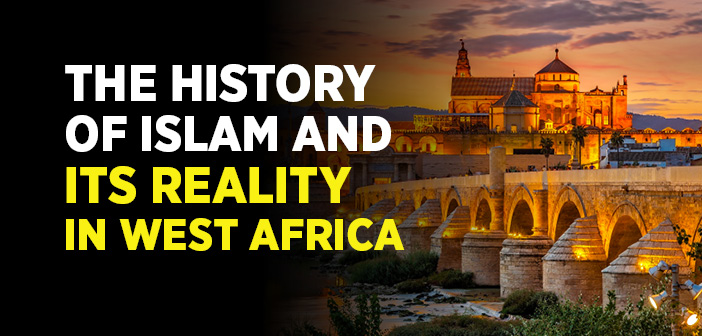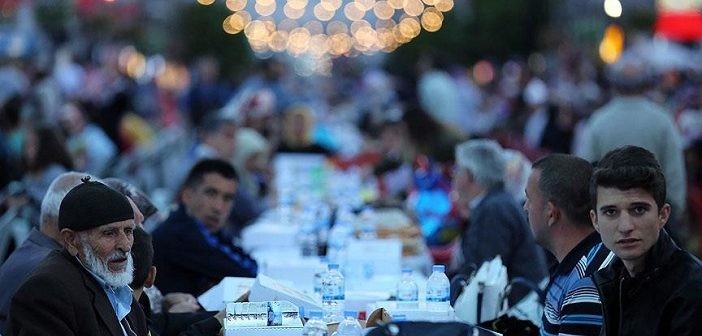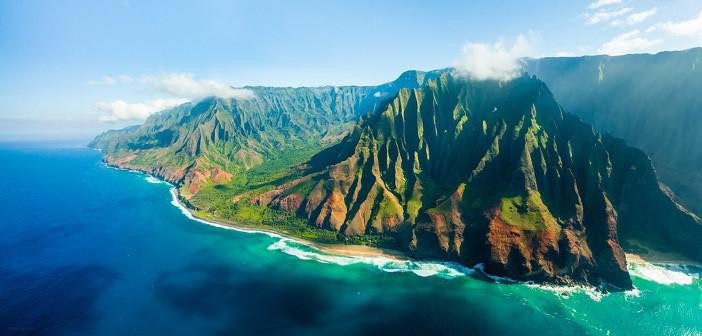
The History of Islam and its Reality in West Africa
What is the history of islam in west africa? What was Islam like in west africa? How did Islam change in west africa? How did Islam impact west africa?
When we speak of West Africa, we are really talking about a huge portion that extends over a very large area of land, as it includes fifteen states: Senegal, Gambia, Gabon, Guinea Bissau, Guinea Conakry, Sierra Leone, Côte d'Ivoire, Ghana, Togo, Benin, Nigeria, Burkina Faso, Mali and Mauritania. Idolatry was the belief of the people of the West Africa before the advent of Islam. Islam occupies the first place in those states to the present. Had it not been the pressure of colonization, its approach towards Islam, its willingness to make every effort to serve the land to Christian missionaries, to oversee education, and they spare no effort to block the spread of Islam through grants and schemes; Islam would have been accepted in the entire area. The honor of the spread of Islam in West Africa belongs to tremendous efforts of the conquerors from the first century of the Hijrah. The first conqueror was (Uqba bin Nafi), which was designated by (Amr bin Ass), may Allah be pleased with him, (who was the governor of Umar bin Khattab in Egypt responsible for the North Africa). He conquered this part of Africa, founded the city of Kairouan in Tunisia, and made it a departure center of his call. He left a strong Arab-Muslim community there and then returned to Egypt. For that first time, the conquests did not extend to the surrounding areas. However, when the conquests started for a second time during the reign of Yazid bin Muawiya, his conquests continued towards the West until they reached up to (Sousse) in Morocco where the tribe (Musamada) embraced Islam. He then continued until he came to the coast of the Atlantic Ocean. Upon reaching the ocean, he urged his horse forward until it could advance no further and then turning towards the sky, he declared his famous saying: “O Allah! Had this ocean not interrupted me, I would have reached the farthest corners of the earth to extol Thy Name.”
Then he turned and headed south where he met the tribe (Sanhaja) that adhered to Islam by means of him. He entered in Tangier, walked towards south, and continued along the outskirts of Sudan. Some of the tribes of Amazigh embraced Islam by means of him. He is considered as the first Muslim leader who fell as a martyr in the African continent.
Musa bin Nusayr was appointed as the successor of Uqba in Africa. He managed to convert some apostate tribes of Amazigh back to Islam. Those tribes became very good Muslims and finally participated in the conquest of Africa and Andalusia.
After that, (Zubair bin Kayr) was appointed as governor in Africa at the time of Abd al-Malik bin Marwan. He also pursued the conquests until his martyrdom. His successor was Abdul Rahman bin Habib bin Abu Ubaidah bin Uqba. The latter fought in the state of Sousse. He dug a series of wells in the Sahara and was able to connect the north of Africa to the south of the Sahara by a strong and solid bond. The important trade centers in North Africa from which Muslims were leaving in order to deliver the message of Islam in West Africa were:
- Cyrenaica, Libya: Muslim caravans would leave Cyrenaica with goods heading towards the direction of Bilma until they arrived to the area of Lake Chad. Then, the caravans would reach the state of Kanem-Bornu.
- Kairouan, Tunisia: traders would leave this town with their camels carrying African products (formerly Tunisia) to get to Tagada where there was copper ores, and there they headed to Kano in Hausa, Nigeria.
- Tlemcen, Algeria: The convoys of Muslim merchants left there to go to the Niger River where the two famous cities are located, Timbuktu and Gao, known in the history of the Islamic State of Mali.
- Road Lamtouna: They were coming from Morocco along the Atlantic coast to the Senegal River Basin.
Thus Islam arrived in West Africa. Since that time in the history of Africa, Islamic kingdoms and empires emerged there. Their emperors and kings cared for Muslim scholars and Islamic Sciences. The School of Imam Malik prevailed in those kingdoms. Among the most important kingdoms and empires were: the empire of Ghana, Mali, Songhai and the Kingdom of Sokoto in chronological order.
The Islamic kingdoms in West Africa:
-
Islamic Kingdom of Ghana:
Ghana is considered the first Islamic empire that was founded in West Africa in general. Some historians believe that Islam entered the capital (Koumby Saleh) of the kingdom since the first century of the Hijrah, precisely in the year 60 AH / 679 CE. Ghana’s relations with the countries of the Islamic world increased in the late eleventh century, especially after the Muslim kings of Ghana got in touch with the Abbasid Caliphate and went under its authority. Then, they ruled their kingdoms as representatives of the Abbasid caliphs. The link between Ghana and Egypt lasted very long time.
It should be noted that among the factors that helped the spread of Islam in this empire from very early, we can cite the role of trade relations that existed then between the Empire and the Islamic world. The religious tolerance that characterized the Ghana emperors also greatly facilitated the peaceful infiltration of Islamic belief among populations. There came times that Muslim migrants were even appointed to high positions in the royal palaces. Muslims were favored in this respect due to their knowledge of writing and reading. Over time, they managed for themselves to create a particular city where there were twelve mosques at the beginning of the eleventh century.
Albakri Abu Ubayd said: “Ghana is the city of the two plain cities, the first is the Islamic city inhabited by Muslims, which is a large city that contains twelve mosques in one of which Friday prayer is performed. It had imams, muezzins, scholars of jurisprudence, and scientists.”
In addition to them, there was another mosque in the king’s palace where Muslim migrants performed their worship. In this respect, Albakri said “there was a mosque in the city of the King, in which Muslims who came near the Council of the King performed their prayers.”
Ghana remained maintaining its political independence until Almoravid army commander Abubakr Umar Bin Allamtuni successfully captured the capital of Ghana (Koumby Saleh) in 1076. After its conquest by the Almoravids, the empire became an Islamic empire. It should be remembered that Almoravids’ control over Ghana did not last long because soon after the Almoravids’ conquest revolts and uprisings broke out. Those uprisings were not against Islam that had been brought by the Almoravids but rather they targeted the achievements of local administration. Abubakr bin Umar was killed in local revolts. With his death, the political authority of the Almoravids collapsed meanwhile his cousin Yusuf ibn Tachifine achieved great successes in North Africa and Andalusia. Despite combined efforts of the Almoravids and Muslims in Ghana, Islam remained confined within a limited geographical area until the emergence of the Mali Empire in the political arena of the region, which brought Islam to many areas of the West African countries.
-
Islamic Kingdom of Mali:
The dominance of the kingdom of Mali spanned over Mali and eastern Senegal, northern Guinea Conakry, Burkina Faso, Benin and the far south of Mauritania. Most of the sources estimate that the Mali Kingdom, in reaching its peak, was the largest of the kingdoms of West Africa. It had a strong interest in the spread of Islam in West Africa due to its commercial activities, especially when the trade routes moved towards the south to seek new and rich sources of gold whose monopoly was under the authority of the Kingdom of Ghana.
The period between the years 1225 and 1455 is accepted as a period of prosperity and power when the sultans adopted the nickname Mansa for the first time and also accepted "Niani" as the capital city. They also encouraged the building of Islamic schools and gave them to the use of the learned men. Among the most famous sultans of this period, we can list the following:
-Mansa Wili (1225-1270), who was the second sultan to have performed pilgrimage from the sultans of the region after "Barmandana" (he performed pilgrimage in 1050). Ibn Khaldun said, "Mansa Wili was one of their greatest sultans and made pilgrimage during time of (Zahir Baybars.”
- Mansa Musa (1307-1332): he visited Egypt during on his way to pilgrimage in 1324. Historians have described the caravan of his pilgrimage stressing that it represented one of the most fascinating manifestation of affluence. Many scholars accompanied him in this noble journey and their number was estimated to have reached at about twelve thousand people. During his time, trade flourished and Islamic education was highly developed in Timbuktu.
The Sultan Mansa Musa began his journey in order to perform obligatory pilgrimage in 1324. His trip left a great echo around the world by its grandeur and what was said about the fortunes of this African Sultan. Among the things that amplified the echo of this trip was that the Sultan was accompanied by six hundred slaves carrying on their backs pure gold and gold dust, and he gave huge amounts of money as charity to the poor and needy in Mecca and Medina.
This historic journey was not limited only to performing an act of devotion, but it went beyond that. It was an opportunity for large-scale cultural exchange. During his journey, Mansa Musa paid particular attention to the ulama (scholars). He got in touch with some elite scholars in Cairo where he stopped by. He exchanged ideas with them about various issues concerning the Islamic world. Moreover, he took advantage of his presence in those countries that were known by science and knowledge to acquire large number of significant books on Maliki jurisprudence. He was particularly interested in the art of original Islamic architecture. During his travels to east and west parts of Muslim world, he was able to contact architects to benefit and draw inspiration from them. He actually managed to achieve to conclude an employment contract with one of the Arab architects of Andalusia, the poet Abu Ishaq al-Sahili al-Andalusi. He agreed to accompany Mansa Musa to go to his sultanate where he oversaw the construction of several public buildings in the capital city "Niani" as well as in other large major cities.
-Mansa Sulaiman (1352-1359): this Sultan was characterized by the building of mosques and Islamic schools, as well as by attracting the scholars of jurisprudence from the Arab-Islamic world. It was in his time that the famous Moroccan explorer Ibn Battuta (d. 1377) visited the Mali Empire and traveled its cities. He was accepted to the presence of the Sultan and met with a group of ulama and traders. He continued his narrations by describing the different aspects of life in the city, particularly regarding memorizing the Holy Quran, the Friday prayer, and the two religious festivals. He also spoke about the characteristics of the people of this beautiful region saying "among others, they attach great importance to the memorization of the Holy Qur'an. They tied their children when they see the negligence of their children in memorizing the Qur’an and do not let them go until they memorize it. I went the home of the Qadi (Judge of Mali) on a festival day and his Children were tied up. I said “do not you release them?” He said, “I will not do that until they memorize the Qur’an.” One day I passed by a young man of them in good shape wearing precious clothes and having foot chains. I said to the person who was with me: “what did this young man do? Did he kill someone?” He understood and began to laugh at me. Then, I was told that he was tied up until he memorizes the Qur’an.”
-
Islamic Sultanate of Songhai:
In its heydays, the Sultanate of Songhai consisted of the land of Mauritania, Mali, Niger, Nigeria and Burkina Faso. Belaraf said in this regard "… and then the Sultanate of Songhai appeared on the stage of incidents This sultanate which was founded by King Ali ibn Ziya completed what had been started by the Mali Empire (... ). He founded a vast empire that encompassed a third of Mauritania, Mali, Niger, Burkina Faso and Nigeria.”
The history of the Songhai Sultanate clearly starts from the seventh century CE with the family of Al-Azwa (Za Dynasty). It expanded its lands during the time of Sinni Ali Ber who reigned between the years 1465 and 1492.
The State of Askia Muhammad al-Kabir (1493-1528), who ended the Sinni Dynasty, was wider. The sultan took over the sultanate following a revolution launched by Sinni Ali Ber who reigned for only one year (1492-1493). He then started to deal with the organization of the kingdom by dividing it into regions. To each region He appointed a governor who were selected directly from the capital (Gao). He created jobs for the first time in Songhai. After maintaining stability in his kingdom, he decided to travel to the East to perform Hajj, and inquire the state of the kingdoms of the East and their mode of operation. He took with him a great number of scholars and dignitaries to pilgrimage. The sources point out that he spent three hundred thousand pieces of pure gold in this trip. He spent one hundred thousand pieces of gold for the expenses of his journey, another hundred thousand for charity to the poor people of Mecca and Medina. He bought a piece of land and a building for the accommodation of the pilgrims from West Africa. As for the remaining one hundred pieces of gold, it was spent on the purchase of necessities and gifts in the markets of Mecca and Cairo. He officially received a rapturous welcome in Cairo formal and solemn manner, while in Mecca a special reception was organized in his honor, during which he was called the Caliph of the countries of West Africa.
After returning from the pilgrimage, he sent strong campaigns to neighboring states of his kingdom, including the Kingdom of the Mossi, now called Burkina Faso, to which he attacked between the years 1497 and 1498 and which was involved in the spread of Islam in the region. The first thing that the Sultan Askia al-Hajj Muhammad did was impeccably organize the administrative, military, and cultural aspects of the state in an unprecedented way in Sudan. He established the Islamic Sharia and its principles in the kingdom and relied on the ulama and scholars of jurisprudence in management. He constituted for the first time what might be called "legislative, executive and judicial bodies to achieve security and justice among his subjects."
Al-Saadi reiterated this fact by saying: "and he endeavored hard to establish the religion of Islam, to deal with the problems of the people. He supported the scholars and consulted them about what lies on him in terms of governance.”
As for Mahmoud Kaat, he was contemporary of Askia Muhammad and his counselor. He noted about the ruling of Askia and his personality saying “he enjoyed many virtues, good policy, compassion to his subjects, and pity vis-à-vis the needy. He had uncountable and incomparable virtues before or after him, and affection for the scholars, the pious and students, his generosity and fulfillment of obligatory and supererogatory acts of worships.
He was one of the wisest and intelligent people of his time. He was modest towards scholars. He financially and spiritually supported them as well as did things for the best interest of Muslims and helped them in their worship and obedience to Allah. He destroyed all that existed in the community as reprehensible acts such as religious innovations, unlawful acts, injustice and bloodshed. He completely established the religion... He renewed the religion and established the justice and leadership ... He appointed a judge to Timbuktu and in all major cities of his kingdom."
In his time, the sultanate reached its climax in the vastness, the richness, and vitality, as well as the political, economic, cultural and military development. This allowed him to extend his authority over most of the West African states. With the expansion of his sultanate, he was able to make it work with wisdom, sincerity, justice, and making goodness prevail in the country. Al-Saadi confirmed this by saying: "In those days Sudan was one of the most blessed parts of the earth of Allah in terms of happiness, comfort and welfare in all aspect of life thanks to the reign of the commander of believers, Askia Muhammad ibn Abubakr in fairness and power of his overall ruling...”
In addition to its equity and good governance, it was characterized by affection for knowledge and the ulama and the application of the Sunnah (Prophet Mohamed all traditions); that's why he had an excellent relationship with the ulama of his time, such qu'Abdoulkarim Elmagyly, to whom Askia asked to draft a constitutional political book. He gave her a booklet (Askia questions and answers Elmougayly).
In addition to his fairness and good governance, he was known by his love for knowledge and his family, and living in accordance with Sunnah. This was why, he had a close relationship with the scholars of his time, such as Abdul Karim Maghili, from whom Askia asked to write a book on Islamic politics. He wrote a treatise called “Asilat al-Askia wa Ajwibat al-Maghili (the questions of Askia and the answers of al-Maghili).”
Similarly, he maintained good relations with Jalal al-Din Suyuti, from whom Askia consulted on many issues when he met Jalal al-Din Suyuti in Egypt on his return from the pilgrimage. Askia Muhammad’s reign lasted over thirty years. He got blind towards the end of his life and one of his children dared to overthrow him. He remained blind sight until his death in 944 AH after living nearly 97 years.
After the time of Askia Mohamed Al-Kabir, a new era opened in the Songhai history, which is characterized by bitter competitions and struggles between the amirs over power. Conspiracies and temptations multiplied, which destroyed all efforts of Askia Muhammad to install the pillars of the state and the dissemination of Justice until Askia Dawud ascended to the throne.
Askia Dawud ibn Muhammad Askia Al-Haj (1459-1582 / 956-991 AH)
Askia Dawud was known for his insight on policy, his openness and love for knowledge and scholars, and modesty toward them, which was why he was considered one of the greatest Songhai sultans. After his father Al-haj Muhammad, who had ruled the kingdom with wisdom and greatly encouraged scientific and scholarly works, such activities developed and made significant progress.
What helped him to make this happen was that his predecessors prepared the path for him. Mahmud Kaat says in his book Tarikh al-Fattash: “the world assisted him, and thus he achieved everything that he wanted, namely the state and governance. The earth provided for him a place, while his father and brothers had suffered and cultivated for him, he came and harvested. They prepared the earth for him and he came and slept on it.”
Then, politically, scientifically and economically his time is considered to be the stage of fulfillment and maturity in Songhai Kingdom. The Ulama of Sudan were raised in Islamic culture, as their works started to appear on Maliki jurisprudence and other Islamic sciences. This sultan cared the scholarly activities very much, and built many scientific facilities in various parts of his country. He attracted scholars from all over the Muslim world and bestowed on them a lot. The facts that the sultan was known for his memorization of the Qur'an and he had a Sheikh who taught him in his home prove that his interest in the scholarly activities was coming from his own recognition of the value of knowledge and its holders.
Kaat described Askia Dawud ibn Muhammad Askia Al-Haj with the following words: “the sultan was a fearsome, eloquent, well able for the presidency, generous, and an open sultan... Allah made overtures to him in this world he was the first who introduced the treasure, even library, and had a scribe copying his books which were often given as gifts to the ulama.” Because of his strong affection for knowledge, for a scholar he bought a dictionary in the markets of Timbuktu for eighty mithqals. His love for knowledge is evident in his remarks: "Had it not been the ulama, we would perish", in addition to his respect, kindness, and generosity to the knowledge seekers. It was in his time that Sheikh Ahmed Baba was born. It should be noted that the King Dawud maintained excellent relations with Mawlay Al-A‘raj, the King of Morocco. The two leaders exchanged gifts with each other. Askia Dawud ibn Muhammad Askia Al-Haj stayed in power for nearly thirty-four years and a few months, and died in the year 991 AH.
-
The Muslim Fulani Sultanate:
The Fulani Sultanate included much of the current Republic of Nigeria, Benin, part of Niger, Cameroon, Togo and Burkina Faso. Its importance is due to the fact that his people had made it their duty to call to Islam and spread the Islamic studies. This allowed the scholars of the sultanate contribute to the Arabic literature by several religious and literary works.
While this kingdom known in the nineteenth century with Usman dan Fodio (d. 1817), the region known since the fourth century with the arrival of the Ulema and scholars of jurisprudence who emigrated to two cities Janna and Timbuktu. Some of them settled in Kano and Katsina, and began to teach people their religion of Islam. Others became teachers, judges, imams and preachers. When the influence of the ulama grew wider, especially in the Emirate of Gober, its governor opposed them and took all the precautions that deemed necessary to suppress and deter them from any action in the direction of reforming his emirate. This drove a Fulani son, namely Sheikh Osman Dan Fodio, to declare a war against the Hausa kingdoms in the year 1804 when it issued a document known as “Document of the People of Sudan”.
Thus Sheikh Osman Dan Fodio left the status of spiritual guide to guide a war, the battle lasted for four years, until Sheikh Osman ascended the power in 1808 to the head of the city (Alkalawa), the capital of Gober. Thus, the whole country came under its authority. This was the declaration of the foundation of the Islamic kingdom Fulani that took "Sokoto" as its capital. Sheikh Osman Dan Fodio left responsibilities between his son Muhammad Bello and his brother Abdullahi bin Fodio, and and devoted the rest of his study and. The period (1817-1859) is the stage of construction and expansion of the Kingdom, which was characterized by the consolidation of the Kingdom and securing its borders, as well as the suppression of internal disturbances which were sponsored by some elements that were in conflict with the reign of the Fulani. It is at this stage that Mohammed Bello (1817-1837) was appointed as successor to his father, Sheikh Osman Dan Fodio.
The period between the years 1859 and 1881 was characterized by stability and security, in which military missions decreased in addition to the reduction of the rebellion. While the first period was distinguished by the length of the duration of the reigns, the second period was characterized by the shortness of the duration of the reigns of the majority of the kings despite that it also was characterized by stability. On the other hand, the period between 1881 and 1903 was characterized by rebellion and turmoil as well as it was characterized by the British invasion of the kingdom until its fall in 1903. It was the last Muslim kingdom founded in West Africa. However, the colonists could not destroy Islam, which continued to spread in the depths of the continent, even in the colonial period.











